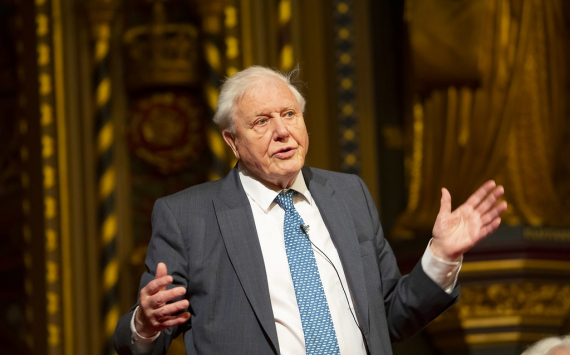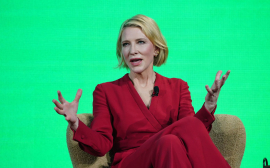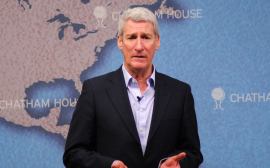Description
OpenAI is an American artificial intelligence (AI) research laboratory consisting of the non-profit OpenAI Incorporated (OpenAI Inc.) and its for-profit subsidiary corporation OpenAI Limited Partnership (OpenAI LP). OpenAI conducts AI research to promote and develop friendly AI in a way that benefits all humanity. The organization was founded in San Francisco in 2015 by Sam Altman, Reid Hoffman, Jessica Livingston, Elon Musk, Ilya Sutskever, Peter Thiel and others, who collectively pledged US$1 billion. Musk resigned from the board in 2018 but remained a donor. Microsoft provided OpenAI LP a $1 billion investment in 2019 and a second multi-year investment in January 2023, reported to be $10 billion.
History
Non-profit beginnings
In December 2015, Sam Altman, Elon Musk, Greg Brockman, Reid Hoffman, Jessica Livingston, Peter Thiel, Amazon Web Services (AWS), Infosys, and YC Research announced the formation of OpenAI and pledged over $1 billion to the venture. The organization stated it would "freely collaborate" with other institutions and researchers by making its patents and research open to the public. OpenAI is headquartered at the Pioneer Building in Mission District, San Francisco.
According to Wired, Brockman met with Yoshua Bengio, one of the "founding fathers" of the deep learning movement, and drew up a list of the "best researchers in the field". Brockman was able to hire nine of them as the first employees in December 2015. In 2016 OpenAI paid corporate-level (rather than nonprofit-level) salaries, but did not pay AI researchers salaries comparable to those of Facebook or Google. (Microsoft's Peter Lee stated that the cost of a top AI researcher exceeds the cost of a top NFL quarterback prospect.) Nevertheless, a Google employee stated that he was willing to leave Google for OpenAI "partly because of the very strong group of people and, to a very large extent, because of its mission." Brockman stated that "the best thing that I could imagine doing was moving humanity closer to building real AI in a safe way." OpenAI researcher Wojciech Zaremba stated that he turned down "borderline crazy" offers of two to three times his market value to join OpenAI instead.
In April 2016, OpenAI released a public beta of "OpenAI Gym", its platform for reinforcement learning research. In December 2016, OpenAI released "Universe", a software platform for measuring and training an AI's general intelligence across the world's supply of games, websites, and other applications.
In 2017 OpenAI spent $7.9 million, or a quarter of its functional expenses, on cloud computing alone. In comparison, DeepMind's total expenses in 2017 were $442 million. In summer 2018, simply training OpenAI's Dota 2 bots required renting 128,000 CPUs and 256 GPUs from Google for multiple weeks.
In 2018, Musk resigned his board seat, citing "a potential future conflict (of interest)" with his role as CEO of Tesla due to Tesla's AI development for self-driving cars, but remained a donor.
Transition to for-profit
In 2019, OpenAI transitioned from non-profit to "capped" for-profit, with the profit capped at 100 times any investment. According to OpenAI, the capped-profit model allows OpenAI LP to legally attract investment from venture funds, and in addition, to grant employees stakes in the company, the goal being that they can say "I'm going to Open AI, but in the long term it's not going to be disadvantageous to us as a family." Many top researchers work for Google Brain, DeepMind, or Facebook, which offer stock options that a nonprofit would be unable to. Prior to the transition, public disclosure of the compensation of top employees at OpenAI was legally required.
The company then distributed equity to its employees and partnered with Microsoft and Matthew Brown Companies, who announced an investment package of $1 billion into the company. OpenAI also announced its intention to commercially license its technologies. OpenAI plans to spend the $1 billion "within five years, and possibly much faster". Altman has stated that even a billion dollars may turn out to be insufficient, and that the lab may ultimately need "more capital than any non-profit has ever raised" to achieve artificial general intelligence.
The transition from a nonprofit to a capped-profit company was viewed with skepticism by Oren Etzioni of the nonprofit Allen Institute for AI, who agreed that wooing top researchers to a nonprofit is difficult, but stated "I disagree with the notion that a nonprofit can't compete" and pointed to successful low-budget projects by OpenAI and others. "If bigger and better funded was always better, then IBM would still be number one."
The nonprofit, OpenAI Inc., is the sole controlling shareholder of OpenAI LP. OpenAI LP, despite being a for-profit company, retains a formal fiduciary responsibility to OpenAI Inc.'s nonprofit charter. A majority of OpenAI Inc.'s board is barred from having financial stakes in OpenAI LP. In addition, minority members with a stake in OpenAI LP are barred from certain votes due to conflict of interest. Some researchers have argued that OpenAI LP's switch to for-profit status is inconsistent with OpenAI's claims to be "democratizing" AI. A journalist at Vice News wrote that "generally, we've never been able to rely on venture capitalists to better humanity".
After becoming for-profit
In 2020, OpenAI announced GPT-3, a language model trained on large internet datasets. GPT-3 is aimed at natural language answering of questions, but it can also translate between languages and coherently generate improvised text. It also announced that an associated API, named simply "the API", would form the heart of its first commercial product.
In 2021, OpenAI introduced DALL-E, a deep learning model that can generate digital images from natural language descriptions.
In December 2022, OpenAI received widespread media coverage after launching a free preview of ChatGPT, its new AI chatbot based on GPT-3.5. According to OpenAI, the preview received over a million signups within the first five days. According to anonymous sources cited by Reuters in December 2022, OpenAI was projecting $200 million revenue in 2023 and $1 billion revenue in 2024.
As of January 2023, OpenAI was in talks for funding that would value the company at $29 billion, double the value of the company in 2021. On January 23, 2023, Microsoft announced a new multi-year, multi-billion dollar (reported to be $10 billion) investment in OpenAI.























